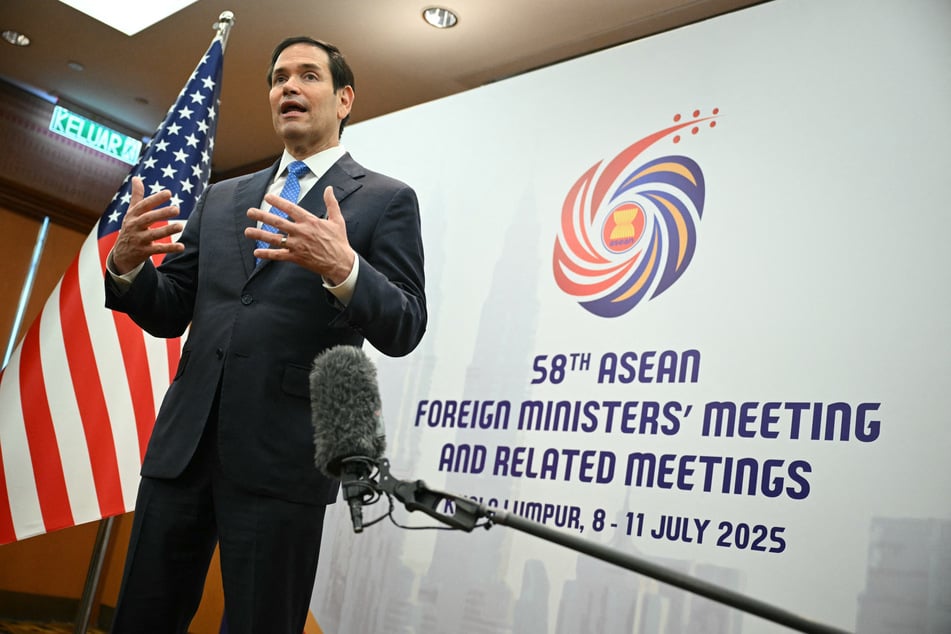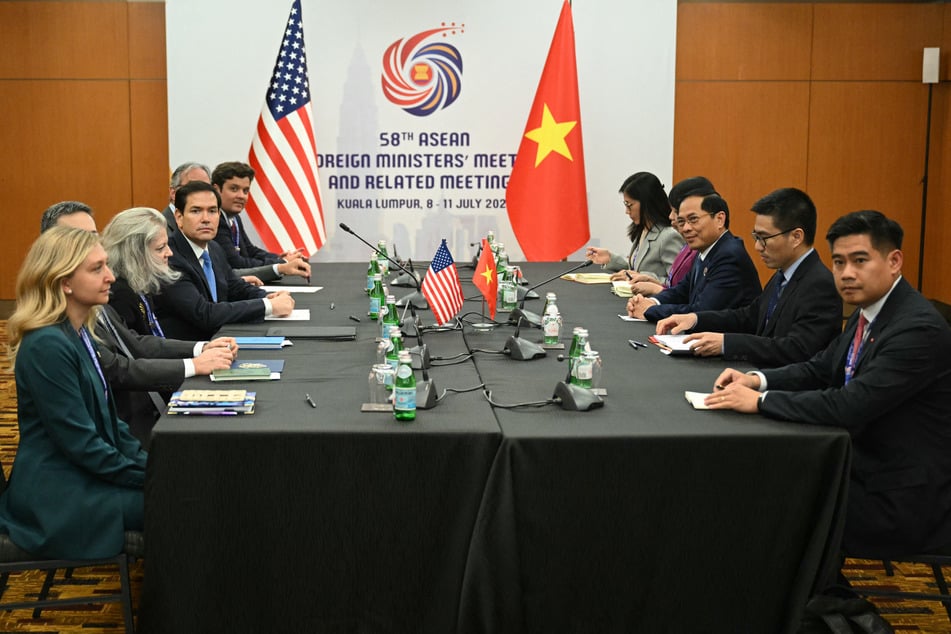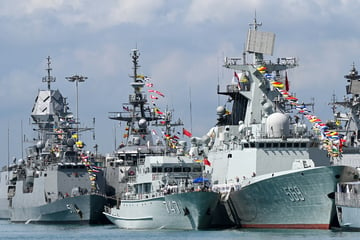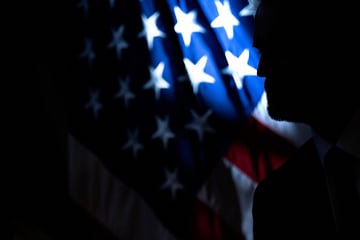Marco Rubio meets with China's Wang on sidelines of ASEAN talks amid looming tariff deadline
Kuala Lumpur, Malaysia - US Secretary of State Marco Rubio met his Chinese counterpart Wang Yi Friday on the sidelines of ASEAN talks in Malaysia, where Washington's tariffs are in sharp focus.

Rubio and Wang's first face-to-face meeting since US President Donald Trump returned to office comes as Washington and Beijing are locked in disputes ranging from trade to Taiwan – and both powers vie for greater influence in the region.
Wang and Rubio, a longtime China hawk, are in Kuala Lumpur for a gathering of foreign ministers from the Association of Southeast Asian Nations, which Japan, South Korea, Australia, and other nations are also attending.
US officials said ahead of Rubio's first trip to the region as secretary of state that Washington was "prioritizing" its commitment to East and Southeast Asia.
Rubio said Thursday the US has "no intention of abandoning" the Asia-Pacific region.
But US tariffs have overshadowed the conference, and Rubio has sought to placate Asian trade partners, saying talks were ongoing and might result in "better" rates than for the rest of the world.
Trump has threatened punitive tariffs ranging from 20 to 50% against more than 20 countries, many of them in Asia, if they do not strike deals with Washington by August 1.
Rubio meets other Asian trade partners at ASEAN amid rising tensions with China

This included long-time US ally Japan, which faced a 25% across-the-board levy, separate from similar charges for cars, steel, and aluminium that have already been imposed. Seoul faced a similar tariff percentage.
Earlier Friday, Rubio met his Japanese and South Korean counterparts, with his spokeswoman Tammy Bruce calling it an "indispensable relationship."
Malaysian Prime Minister Anwar Ibrahim, however, said this week that tariffs were being used as "sharpened instruments of geopolitical rivalry."
Wang on Thursday said the US tariff drive "undermines the free trade system."
"The United States' imposition of high tariffs on Cambodia and Southeast Asian countries is an attempt to deprive all parties of their legitimate rights to development," Wang said.
Tensions between Washington and Beijing have ratcheted up since Trump took office in January, with both countries engaging in a tariff war that briefly sent duties on each other's exports sky-high.
At one point, the US hit China with additional levies of 145% on its goods as both sides engaged in tit-for-tat escalation. China's countermeasures on US goods reached 125%.
Beijing and Washington agreed in May to temporarily slash their staggeringly high tariffs – an outcome Trump dubbed a "total reset."
Cover photo: MANDEL NGAN / POOL / AFP

